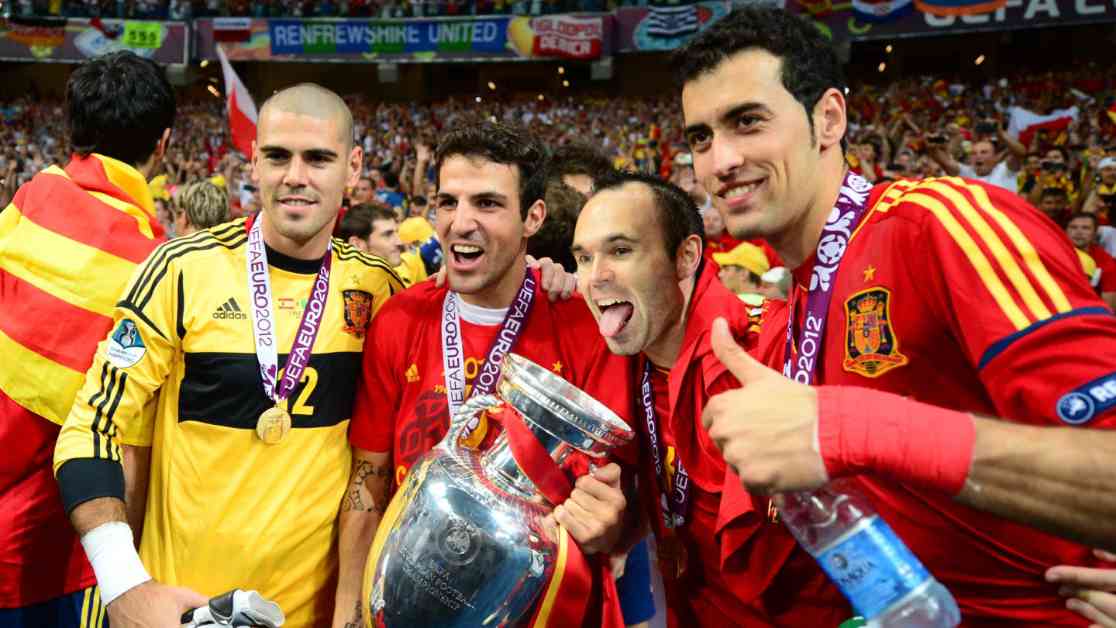Spain is known for its passionate love for football, with iconic clubs like Barcelona and Real Madrid producing some of the world’s best talents. The Spanish national team has had a rich history, especially in the 21st century when they won three major tournaments between 2008 and 2012. Here are the top 25 Spanish soccer players of all time, ranked based on their achievements with the national team.
1. Gento – A Real Madrid icon who left a lasting impact on Spanish football.
2. Carvajal – A legend at Real Madrid known for his consistency and skill.
3. Zamora – A goalkeeper who guarded the Spain goal in the early 20th century.
4. Amaro – A tribute to the late Spanish player who contributed to the country’s football legacy.
5. A left-back who continues to excel in the MLS, showcasing Spanish talent on the global stage.
6. Camacho – A star player for Spain who showcased his skill and dedication.
7. Di Stefano – A legend who also played for Argentina and made significant contributions to Spanish football.
8. Alonso – An underappreciated midfielder who played a crucial role for Spain.
9. Zubizaretta – A talented goalkeeper who represented La Roja with pride.
10. Fabregas – A member of Spain’s legendary midfield, known for his vision and creativity.
11. Torres – Scored the winning goal in the Euro 2008 final, solidifying his place in Spanish football history.
12. A Man City icon who achieved impressive tallies and left a mark on Spanish football.
13. A rock at the back for Spain, showcasing defensive prowess and leadership.
14. Pique – A consistent defender for Spain who played a crucial role in the team’s success.
15. Suarez – A trailblazer in Spanish football with his skill and determination.
16. A prolific forward who made significant contributions to Spain’s success.
17. Puyol – A leader at the back who inspired his teammates with his passion and commitment.
18. Villa – Spain’s record goalscorer, known for his scoring prowess and determination.
19. Busquets – A crucial member of Spain’s famous midfield, known for his tactical awareness and passing ability.
20. Strikers feared facing Sergio Ramos for Spain, a testament to his defensive skill and physicality.
21. Casillas – One of the best goalkeepers ever, known for his shot-stopping abilities and leadership on the field.
22. Xavi – The pass master who controlled the midfield and dictated the pace of the game for Spain.
23. Andres Iniesta – Scored the World Cup-winning goal for Spain, etching his name in football history.
These players have left a lasting impact on Spanish football, showcasing skill, passion, and dedication on the international stage. Their contributions have helped Spain achieve success and establish itself as a footballing powerhouse.















